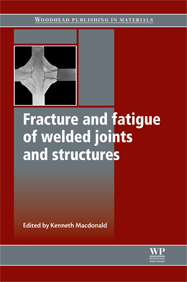Feb 16 2011
A search of recent news for welding failure generates stories of failure in a number of industries from railways to pipelines, publicised as industry examples of potential malfunction. The failure of any welded joint is at best inconvenient but at worse can be hugely costly in terms of both lives and repair.
Fracture and fatigue of welded joints and structures from Woodhead Publishing analyses the processes and causes of fracture and fatigue, focusing on how the failure of welded joints and structures can be predicted and minimised in the design process. An overview of fracture assessment methods provides an evaluation of the development of Engineering Critical Assessment (ECA), Single Edge Notch Tension (SENT) and the Failure Assessment Diagram (FAD).

The focus on analysing fracture includes constraint-based fracture mechanics in predicting the failure of welded joints and explores established test methods. Practical examples illustrate the use of fracture mechanics in fatigue analysis with particular reference to technical applications. The presentation of fatigue design rules further reiterates the key features of welded joints influencing fatigue.
With its distinguished editor and international team of contributors, Fracture and fatigue of welded joints and structures is an essential reference for mechanical, structural and welding engineers, as well as those in the academic sector with a research interest in the field.